Developing open source software for newsrooms
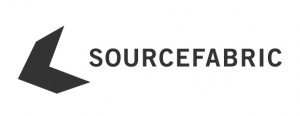 News organisations worldwide are more often than not trying to answer these questions: which content management system is best for us? Should we develop a technical solution ourselves or should we use open software? Will this open system be flexible and innovative enough?
News organisations worldwide are more often than not trying to answer these questions: which content management system is best for us? Should we develop a technical solution ourselves or should we use open software? Will this open system be flexible and innovative enough?
Sourcefabric says it has answers to those questions. This non-profit organisation is headquartered in Prague and develops open source software for newsrooms. The idea behind it is simple. Although a newsroom in Berlin can be totally different from one in Baghdad or Bangkok, all newsrooms function in a similar way regardless of their location. Any newsroom needs to gather, filter, publish and archive information.
Media organisations from Ghana to Switzerland and from Brazil to Belarus are using Sourcefabric’s opensource software such as Newscoop and Airtime. A network of developers worldwide are continuously refining their products. DW Akademie’s Steffen Leidel spoke to Sourcefabric’s Adam Thomas about their software and why their tools and systems are proving successful in media organisations, particularly in developing countries.
![]() read more
read more
Online security: How to recover deleted files
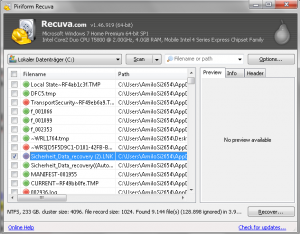 In our previous post on online security, we’ve covered basic tools which will help you securely erase data from you computer, or SSD and USB flash drives. So let’s now take a look at how you can restore your data in case you’ve deleted it by accident. As well as being a good skill to know if you can bring the deleted data back to life it’s also useful to know you find out how effective your efforts were securely delete the data in the first place.
In our previous post on online security, we’ve covered basic tools which will help you securely erase data from you computer, or SSD and USB flash drives. So let’s now take a look at how you can restore your data in case you’ve deleted it by accident. As well as being a good skill to know if you can bring the deleted data back to life it’s also useful to know you find out how effective your efforts were securely delete the data in the first place.
![]() read more
read more
Tools and Apps for Journalists: Cowbird
What is Cowbird?
A multimedia storytelling tool. But Cowbird strips things back to present stories in a straightforward way. Think simple: text, photographs, and audio. The story is the focus – as it should be.
![]() read more
read more
Aron Pilhofer: ‘You have to put priority on digital’
The New York Times has long served as a example of a media organization that is successfully combining digital technologies with high-quality journalism. From the Pulitzer prize-winning, multimedia story Snow Fall, which has generated more than 3.5 million page views, to its paywall subscription model, many are looking to the prestigious institution for answers on how to survive the digital future. But the New York Times is also still experimenting. “We don’t know what is best practice,” says Aron Pilhofer, one of the best digital minds at the news organization.
Pilhofer is head of the social media team, communities team and interactive news team, which employs journalists as well as programmers and data experts (follow Pilhofer on Twitter). He recently has a new team to manage – the newsroom analytics team which aims to better understand how content is consumed. In an interview with DW Akademie’s Steffen Leidel, Pilhofer explains his hopes for the new team, the lessons he has learned from past mistakes and the challenges facing future generations of journalists.
![]() read more
read more
Online security: How to erase your data forever
 Journalists often have to deal with confidential data. But how can you delete your data such as files, interview records or videos so that no third party can gain access to them?
Journalists often have to deal with confidential data. But how can you delete your data such as files, interview records or videos so that no third party can gain access to them?
Well, it’s not that easy as you might think. Deleting your files and emptying the recycle bin on your computer is clearly not enough. Here are some recommendations on how you can erase data from your computer.
Information leakage can take place anytime. Lending your USB stick to a colleague can put your data at risk. Worse still is attempting to sell your laptop thinking that erasing old files will be enough. And it can turn into a disaster if someone is looking for your data intentionally. In fact, it’s not that difficult to restore the data which had been deleted. It’s not enough to erase your files, empty your recycle bin or format the storage medium such as USB stick. So, let’s see how the deletion process works and what you can do to safely erase your files.
![]() read more
read more
Richard Sambrook: ‘The values of traditional journalism still matter’
After years of hype surrounding the rise of social media and the Internet as alternative sources of news and information, a growing number of voices are warning that traditional journalistic standards of objectivity and impartiality are still necessary even in the digital age. One of them is journalism professor and former head of BBC news Richard Sambrook.
In a recent study, Sambrook (@sambrook) writes of serious concerns about the quality and practices of news media. While acknowledging that it is difficult to enforce professional standards in the digital age, he concluded it would be “dangerous” to “disregard such standards”. DW Akademie’s Steffen Leidel discussed these issues and more with Richard Sambrook.
![]() read more
read more
Justin Arenstein: Hacks and hackers working together in Africa
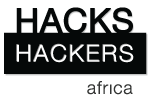 As new media continues to reshape the world of journalism, newsrooms need to reinvent themselves to stay relevant. But not all journalists and organizations have the technological skills to become innovative news providers. This is where Hacks/Hackers is stepping in to fill the gap. Hacks/Hackers is a grassroots journalism organization which brings together journalists and software developers. Originating in the United States, chapters of the movement are rapidly spreading around the globe, including Africa. The idea is to hook up hackers (developers and software writers) who sort and visualize information together with hacks (journalists) who are excited about using new technology to tell great stories.
As new media continues to reshape the world of journalism, newsrooms need to reinvent themselves to stay relevant. But not all journalists and organizations have the technological skills to become innovative news providers. This is where Hacks/Hackers is stepping in to fill the gap. Hacks/Hackers is a grassroots journalism organization which brings together journalists and software developers. Originating in the United States, chapters of the movement are rapidly spreading around the globe, including Africa. The idea is to hook up hackers (developers and software writers) who sort and visualize information together with hacks (journalists) who are excited about using new technology to tell great stories.
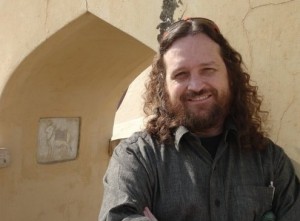 Justin Arenstein is one of the driving figures behind the Hacks/Hackers movement in Africa, where there are currently 13 chapters. Arenstein, a South African, is currently a Knight International Journalism Fellow in charge of the Digital Innovation Program at the Africa Media Initiative. He also is a consulting strategist for Google on data and digital journalism issues (Twitter: @justinarenstein). DW Akademie’s Kate Hairsine talked to him about Hacks/Hackers in Africa.
Justin Arenstein is one of the driving figures behind the Hacks/Hackers movement in Africa, where there are currently 13 chapters. Arenstein, a South African, is currently a Knight International Journalism Fellow in charge of the Digital Innovation Program at the Africa Media Initiative. He also is a consulting strategist for Google on data and digital journalism issues (Twitter: @justinarenstein). DW Akademie’s Kate Hairsine talked to him about Hacks/Hackers in Africa.
![]() read more
read more
Journalists@Work: Ta Thi Ngoan
In this installment of Journalists@Work, we’ll introduce you to Ta Thi Ngoan, an editor with Quang Ninh Radio & Television (QTV) in Vietnam. She has worked for this station in the country’s northern Quang Ninh province for almost four years. QTV was DW Akademie’s partner in a three-year project called “Radio for the People” and during these three years, Ta Thi Ngoan took part in a number of our workshops.
Ta Thi Ngoan is now in charge of presenting a live radio program called “60 Minutes You and I”. It’s a call-in program for young listeners and runs every Sunday. She also produces some stories related to tourism, which is a key industry in Quang Ninh province, since it is home to Vietnam’s famous Ha Long Bay.
![]() read more
read more
E-learning for journalists: free courses and webinars
 MOOCs, massive open online courses, help journalists all over the world improve their skills and learn from the best without leaving their computer desk. That’s a great opportunity, especially for reporters from developing countries. In this post, we’ll explain how e-learning has evolved and where you can find free journalism-related courses.
MOOCs, massive open online courses, help journalists all over the world improve their skills and learn from the best without leaving their computer desk. That’s a great opportunity, especially for reporters from developing countries. In this post, we’ll explain how e-learning has evolved and where you can find free journalism-related courses.
E-learning has been around for several years. Many universities offer their lectures and study plans online. For example, e-learning platform edX offers free courses from several universities, however, the courses are not that numerous and are mostly technical. Harvard Open Courses offers courses on journalism, but the enrollment process is lengthy and, moreover, there’s a tuition fee, which means the courses are not really for the masses. Berkeley University,Yale University and Massachusets Institute of Technology also put their courses online, which are basically recorded class sessions.
Stanford University is doing something different by offering customized online sessions via the iTunes, but there’s still a heavy element of lecturing and no interaction with the instructor and other students.
These are all great opportunities for journalists to learn more about their profession without having to attend whole courses. But watching or listening to recorded classroom presentations is a rather one dimensional model.
![]() read more
read more
Entries still open for German Development Media Awards
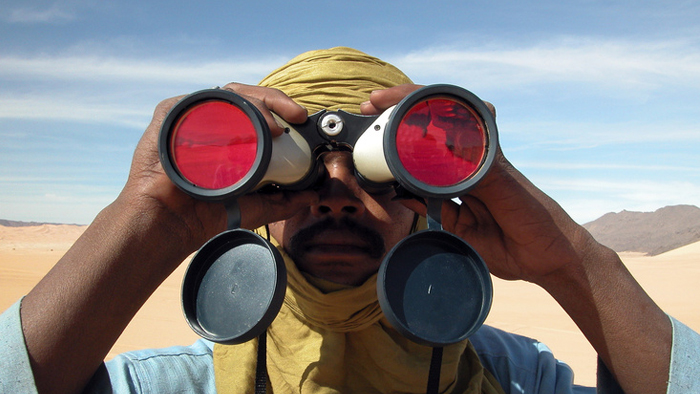 Have you produced an outstanding story on development or human rights issues, or know a colleague who should be nominated for their reporting in these fields?
Have you produced an outstanding story on development or human rights issues, or know a colleague who should be nominated for their reporting in these fields?
Entries for the German Development Media Awards are still open – the deadline for submission is May 31, 2013.
The awards champion independent media across the world and put the spotlight on journalists telling important stories affecting their communities, countries and regions.
The awards are a new initiative by the German Federal Ministry for Economic Cooperation and Development (BMZ) and Germany’s international broadcaster, Deutsche Welle.
Six prizes worth 2,000 euros each will be presented as part of the awards – one each to a journalist from Africa, Asia, Latin America, the Middle East, Eastern Europe and Germany.
![]() read more
read more












Feedback